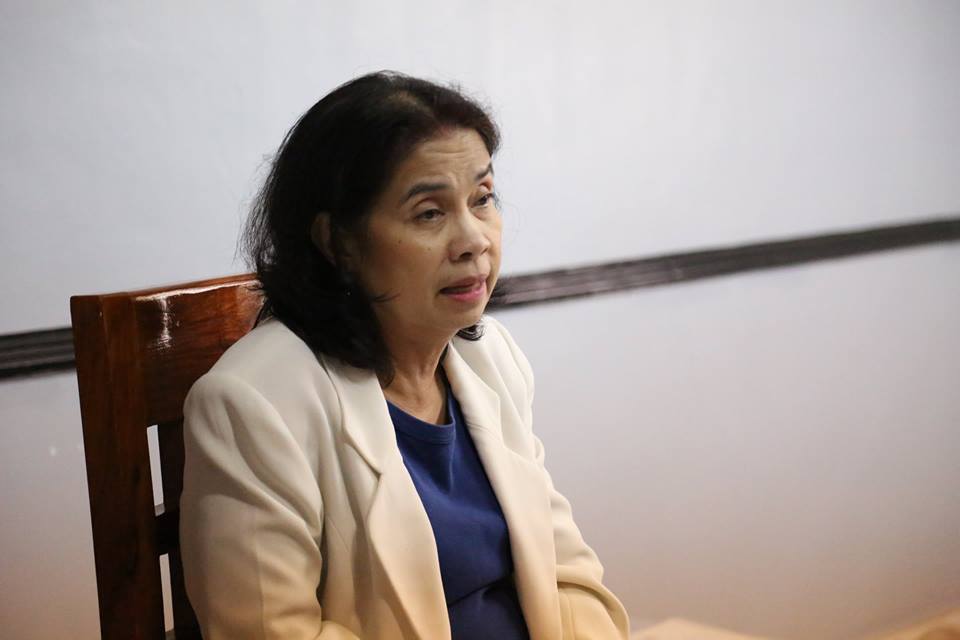
MANILA — In an effort to rid the streets of loitering youths, the Department of Social Welfare and Development (DSWD) on Wednesday assured that their centers and social workers will be on-call 24/7 to give necessary assistance to poor Filipinos aged 18 and below.
DSWD Acting Secretary Virginia Orogo made this remark after President Rodrigo R. Duterte, on Monday, ordered the Philippine National Police (PNP) to pick up loitering teenagers to protect them from crime and illegal drugs.
Orogo said that DSWD centers’ doors will be open to loitering youths the same way they are open to street children and their families.
“Yung DSWD matagal na pong may programa para sa mga batang nasa kalsada. Ang ginagawa po namin, pag dumating po sa aming mga centers, sila po ay aming inaalagan at inaayos yung kanilang case (The DSWD already has a program for children in the streets. What we are doing is, when they arrive at our centers, they are taken care of and we try to fix their case),” Orogo said in a Palace briefing.
DSWD has previously urged the public to report, through Twitter, sightings of street children so that social workers can be sent to rescue them.
Moreover, Orogo said social workers also take calls through the national emergency and complaint hot lines, 911 and 8888, respectively.
“Merong mga social workers po, sinabi nga natin sa DSWD ngayon, 24/7, on-call. May mga field offices po kami na pag tinawagan po sila ay pumupunta naman po sila doon at yung mga social workers, inaayos yung kanilang mga case (There are social workers, we’ve said that the DSWD is now open 24/7, on-call. There are field offices that immediately attend to their needs and attend to their cases),” Orogo said.
“Yung mga children, kung may mga magulang ‘yan, kinakausap yung magulang, kung wala po dinadala natin sila sa centers (And the children, if they have parents, social workers talk to them, if they don’t, we bring them to our centers),” he added.
Orogo said that at present, the DSWD has a total of 72 centers but usually accommodate senior citizens. However, she said that the agency is currently adding 50 more beds in each center to accommodate more people.
Silungan sa Barangay
There is also an upcoming program called “Silungan sa Barangay,” meant to allocate space for street kids and their families, which is on the table for further study.
“Meron po kaming bago ngayong ilulunsad na programa ito yung tinatawag naming Silungan sa Barangay. Ito po ay bagong programa kung saan kakailanganin namin ang tulong ng bawat mamamayan sa barangay (We are going to launch a program called Silungan sa Barangay. This is a new program where we will need the help of every citizen),” she added.
Orogo said that she is currently coordinating with Department of Interior and Local Government (DILG) Officer-in-Charge Eduardo Año and Undersecretary for Barangay Affairs Martin Diño on allocating space in barangay centers for street children as well as loiterers need a place to stay for the night until picked up by their parents.
“Nag-usap na po kami initially ni Secretary Año at ni Undersecretary Diño, para iyong barangay po ay magkaroon ng space, mag-allocate sila ng space, puwedeng building, puwedeng kung mayroon mang government (I have spoken to Secretary Año and Undersecretary Diño so that they can allocate space in barangays, or even a building),” Orogo said.
She said that barangay centers are already providing a multi-purpose space for children and determining how many it can accommodate.
“Ang aayusin lang ngayon iyong siguro gaano karami itong mga batang itong ilalagay sa barangay, tapos immediately ipo-process at magkakaroon tayo ng case study sa bawat bata para mailagay sa centers kung talagang walang magulang (What we need to determine is how many children will be accommodated in the barangay, and then we will immediately process and there will be a case study to find out if we can place those without parents in the centers),” she added.
The DSWD chief, meanwhile, renewed her call for support from stakeholders to address the plight of poor Filipino children whose lives are at risk on the streets.